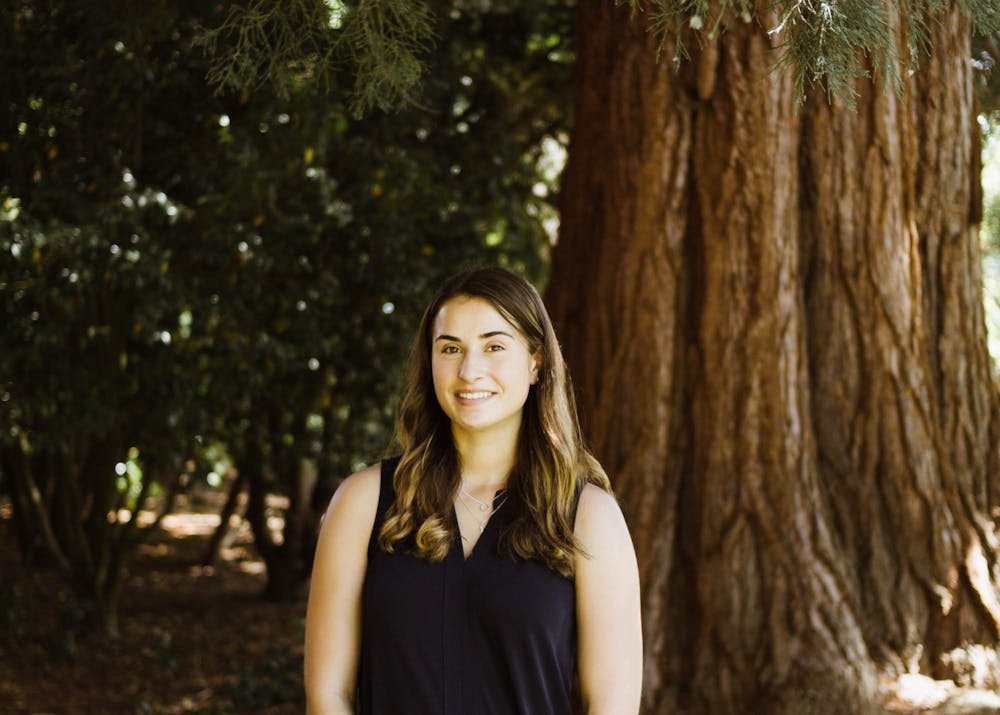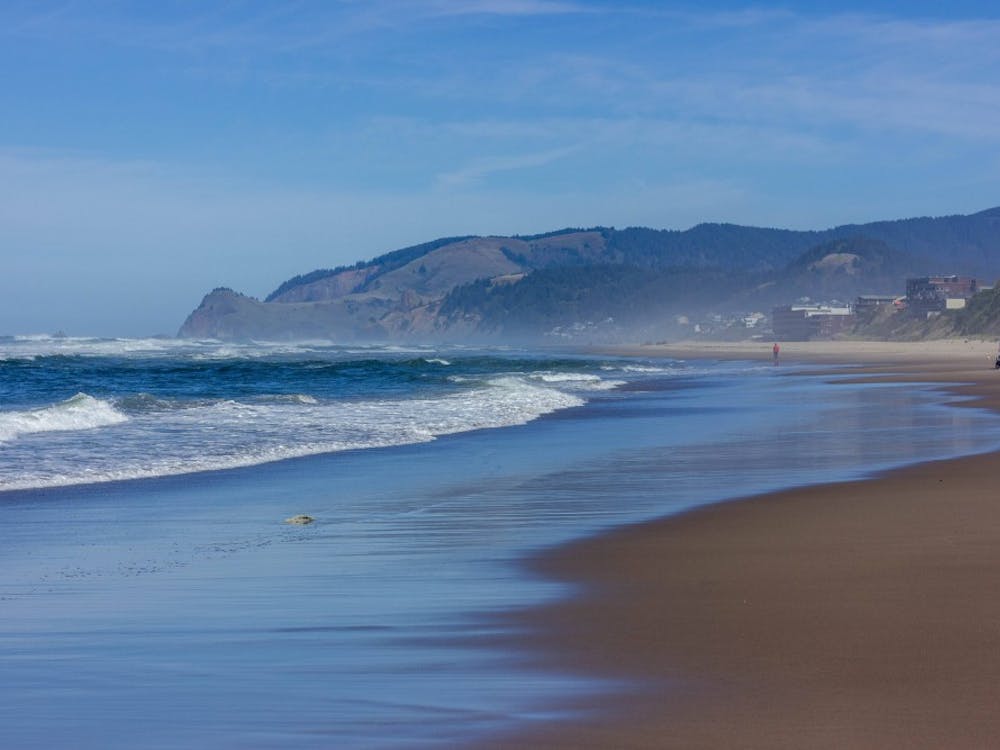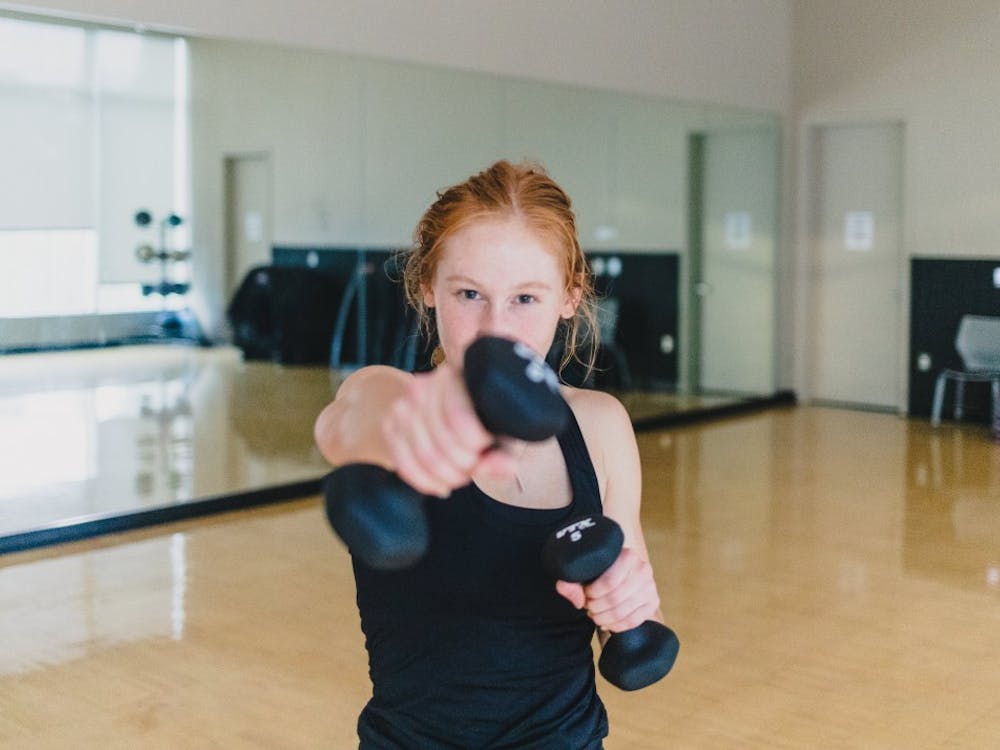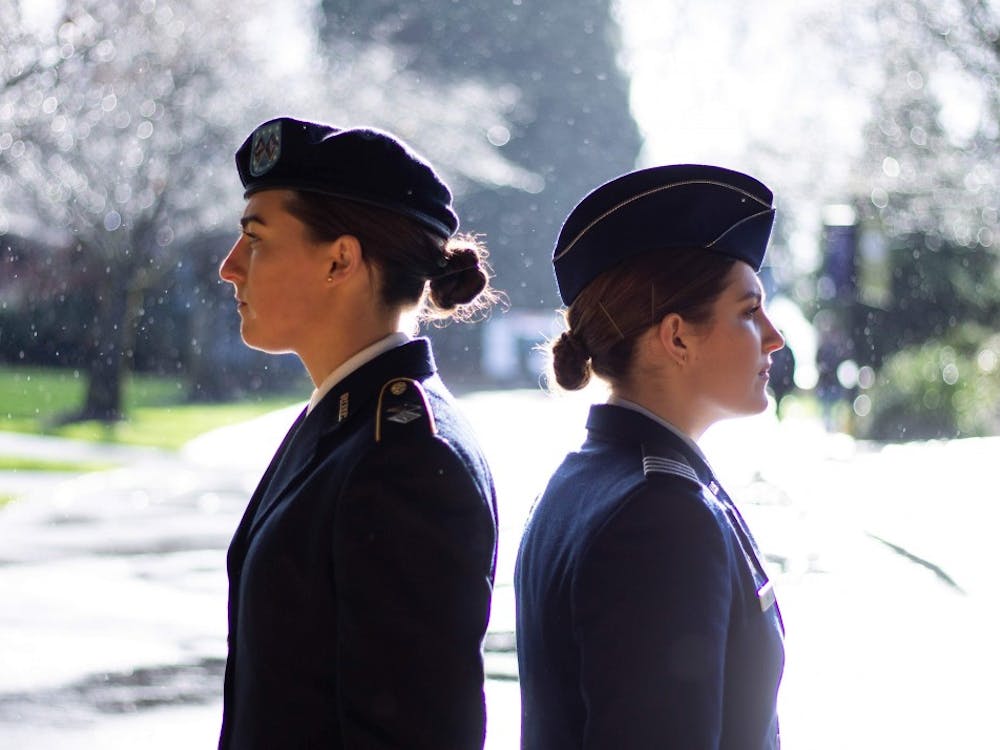“Riding isn’t a sport, the horse does all the work!” This is a commonly loathed statement among all equestrians. Typically, those who challenge horseback riding as a sport are those whose only exposure of “riding” is from touristy trail rides. They’re on a well-broke horse taking a one hour guided ride in a single file line where they walk around in a western saddle. Most people have no clue how much effort goes into riding competitively.
I fear the often hurtful comments from non-riders when talking about my latest ride. It’s baffling the number of times I have been told horseback riding is not a form of exercise or a sport, because “all you do is sit there while the horse does all the work.” This cringy comment in the past has made me insecure about my interest in riding. However, this problem arises from ignorance and not from ill will. Riding is a great workout and a recognized sport. Everybody should take a riding lesson at least once in their lifetime; it’s possible you might fall in love or at least learn to appreciate this unorthodox sport.
Before college, I had competitively ridden horses for roughly 10 years. I competed in primarily showjumping and dressage and often came home from practice dirty, exhausted and sore. The physical strain from a good, strenuous ride was astonishing. Whether you are a showjumper, dressage rider, eventer, barrel racer or polo player, the health benefits of horseback riding are plentiful. It simultaneously works your core, balance and coordination, muscle tone and flexibility, and improves your cardiovascular and mental health. A real day of riding can leave you feeling muscle aches and pains you didn’t know you could feel.
When you are riding, you are constantly keeping yourself from being bounced off. To stay balanced on the horse, you are primarily using your core and legs. Horseback riding is an isometric exercise, which means it uses specific muscles to stay in a certain position. This includes actively working your abs, lower back, and obliques to help create core stability. Anybody who has tried doing a simple core exercise knows how difficult and uncomfortable it can get. Now imagine actively squeezing your abs for 60 minutes or more on a 1,200-pound, stubborn beast. Riding is a great core exercise similar to the feeling of a modified plank.
To steer the horse, the rider uses a combination of hand and leg cues called aids. Aids are physical pressures a rider uses to communicate with the horse. The inner thigh and pelvic muscles get the brunt of the workout as riders focus on positioning themselves and steering the horse. Riders basically have to maintain a squatting position while they ride. Overall, this contributes to muscle toning and flexibility of your body. Along with leg strengthening, your arms and shoulders are getting a workout as well, as they have a constant and tiring connection with the horse's mouth. This is the equivalent of a moderate gym workout with weight resistance.
Despite all the skills and practice needed to ride, it is often perceived as an activity and not a sport. Equestrian sports is one of the oldest sports and fulfills every definition of a sport. If done correctly, horseback riding can look effortless, which may be why people think the horse does all the work.
Competing was one of my favorite aspects of riding. It made me a better person and it made me extremely happy. It put structure and discipline into my life when I needed it the most, and it was therapeutic and emotionally healing for me. If I won a competition, it made me feel like I was on top of the world. And if I didn't, just the endorphin rush I got from competing left me with a happy buzz that could last for days. For me, riding horses is always a heady combination of adventure, exhilaration and a nice distraction from life.
There is this overwhelming feeling of freedom I get from showjumping. I can recall all off my competitions like they happened yesterday.
Walking into a massive ring, gazing at all the jumps, briskly trying to recall the course I have to complete. I have 20 seconds after I’ve entered the ring to imagine the path I want to take to each jump. My heart is racing, and I’m shaking from nervous excitement. Over the speakers, I faintly hear the announcer declare, “Now entering Tessa Rodgers on The Perfect Crime (my late horse’s show name).” As the buzzer goes off and the timer starts, I squeeze my legs and start into a steady gallop. I fly over each jump, whipping my horse tightly around each corner. It's an amazing feeling racing against the clock, knowing you have a certain time to beat to win over another rider. And the accomplishment you feel after passing the end timer is amazing.
My favorite feeling after completing an exhilarating course is the way my lungs burn from breathing so hard. I love the way my body is shaking from head to toe and the lightheadedness I get from a massive adrenaline rush. The feeling is pure joy.
Tessa Rodgers is a reporter for The Beacon. She can be reached at rodgerst21@up.edu.








